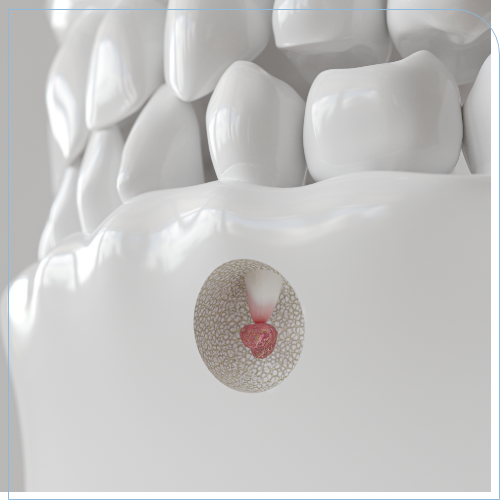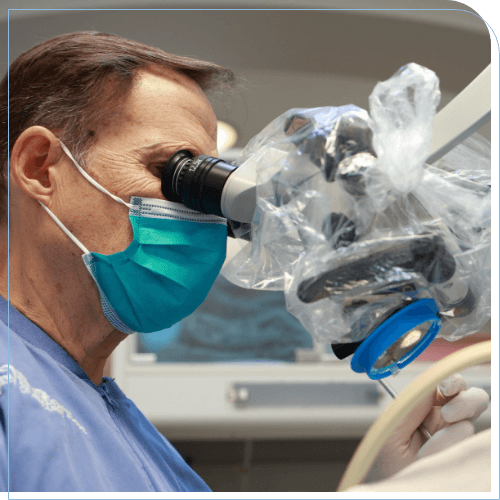Our top priority is to save your natural tooth, and apicoectomies allow us to do so when the tissue surrounding an infected tooth is severely damaged. This type of microsurgery lets us heal not just the interior of your tooth, which a root canal can, but also the area around it if the infection has progressed. If you’re experiencing oral pain that you feel is associated with an infection, call our office today to schedule an emergency appointment and preserve your natural smile with apicoectomies and root canal surgery in Melbourne.
Why Choose Associated Endodontists of Melbourne for Apicoectomies?
- Same-Day Emergency Appointments Available
- An Endodontist Who Has Performed 35,000+ Root Canals
- Precise Treatment with a High-Powered Dental Microscope
What Is an Apicoectomy?
An apicoectomy involves removing any remaining inflamed or infected tissue around a tooth and at the tip of the roots. The goal is to remove this diseased tissue to keep the infection from spreading to surrounding teeth. If this procedure isn’t completed, your only other options for treatment involve extracting the tooth or not getting the treatment, which could result in the infection spreading and compromising the health and stability of surrounding teeth.
The Apicoectomy Treatment Process
Dr. Scott has decades of experience and specialized training and education that will make your apicoectomy a breeze. He’ll begin the treatment by numbing the area around the tooth to ensure you’re comfortable while he accesses the roots of the tooth in question. He’ll then remove a few millimeters from the tip of the roots as well as any infected or inflamed tissue surrounding it. To ensure no harmful bacteria linger, he’ll thoroughly clean and seal the interior of the tooth using our advanced GentleWave® system. Finally, he will suture the gums so they can heal.
What Happens After My Apicoectomy?
Once the numbing effect has begun to wear off, you’ll likely experience some discomfort, sensitivity, and swelling around your treated tooth. These side-effects should improve with time, eventually going away altogether. We recommend taking a day or two off of work or school to fully recover from the procedure and before returning to your normal activity level. We may also prescribe some antibiotics for you to take after your treatment to make sure the infection is completely cleared, as well as ibuprofen or another anti-inflammatory.




